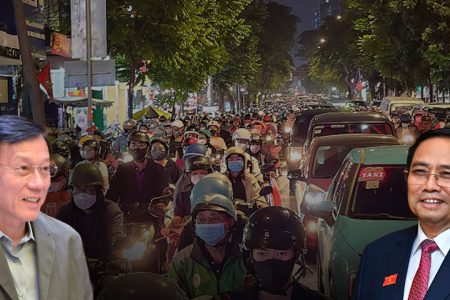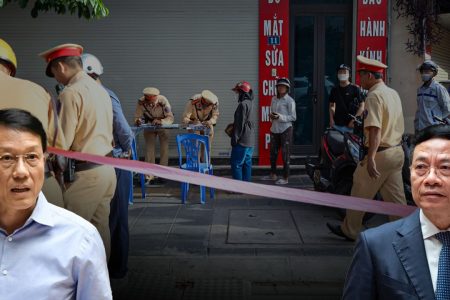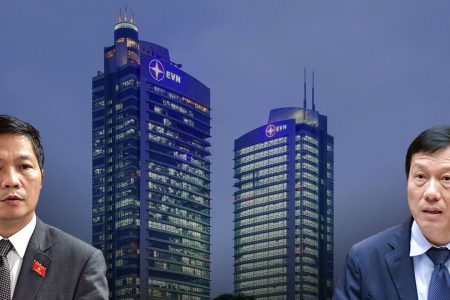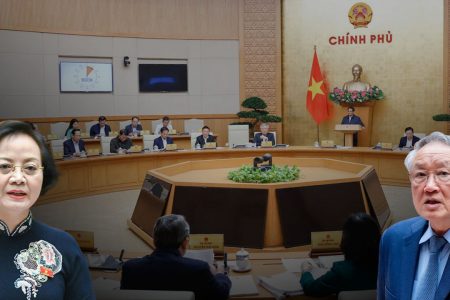Before 1986, Vietnam’s economy was “planned” following the general model of Communism. After the so-called “renovation” process, Vietnamese leaders decided to move the economy to a capitalist market economy model. But to hide their betrayal of Communism, which Mr. Ho Chi Minh chose, they added the suffix “Socialist orientation” after the phrase “market economy.”
Since then, Vietnam’s economy has had the name: “Socialist-oriented market economy,” like no other. In the world, only Vietnam has such a strange concept.
That is why, for a long time, Vietnamese leading officials have repeatedly asked the United States and Western countries to recognize Vietnam as having a market economy. With this request, Vietnam hopes to receive support and incentives from the World Trade Organization (WTO). But this proposal has so far failed to achieve results.
It is known that Vietnam has been recognized by 69 countries around the world to have a market economy. But the United States and other major Western economies definitely do not acknowledge it.
Voice of America (VOA) on January 24, citing a report from an international news agency, announced the news with the title “Vietnam: The US’s listing as a non-market economy is harmful to bilateral relations. direction.”
The news said, Vietnamese Ambassador to the US Nguyen Quoc Dung spoke at the Center for Strategic and International Studies, in the US, on January 23, calling on the US to stop labeling “non-market economy” for Hanoi. At the same time, Dung warned that “maintaining punitive tariffs on Vietnamese goods is not good for the increasingly closer bilateral relationship.”
Still according to the above international news agency, Ambassador Nguyen Quoc Dung also said that together with 12 other nations worldwide, Vietnam does not deserve to be listed as a “non-market economy” a regulation designated by the US.
Ambassador Dung said “Let’s look at the relationship between our two countries, is it acceptable that Vietnam is among those 12 countries… the worst countries in the world?”

It is known that after being included in the list of “non-market economies,” Vietnam continuously faced disadvantages in US anti-dumping lawsuits. The designation of Vietnam as a “non-market economy” is also applied by the US to China, Russia and a number of other countries, on the grounds of “strong state involvement in the economy.”
The United States has imposed significantly higher anti-dumping duties on imports from the countries having no market economy. To be more specific, these are countries with authoritarian regimes. When they do not strictly, properly and fully comply with the concept of a market economy, they are immediately put on the above list, of which Vietnam is an example.
In 2023, when the United States and Vietnam upgraded their relationship to a “Comprehensive Strategic Partnership,” in the same year, Vietnamese Prime Minister Pham Minh Chinh also called on the US Secretary of the Treasury to end the labeled “non-market economy.” Vietnam was promised that it would consider it. According to US law, the review process will have to be completed within 270 days, or around mid-July 2024, before Vietnam will have an answer.
According to experts, in principle, if a country respects the law like the United States, it is not possible for Vietnam to be removed from the list of “Group of 12 countries with non-market economies” under current conditions.
Meanwhile, Vietnamese leaders, due to lack of understanding, sometimes make random statements, say careless words, or take things for granted, but they do not foresee all the consequences. For example, during his visit to China at the end of 2023, State President Vo Van Thuong said “Vietnam and China together persevere in moving towards Socialism, under the leadership of the Communist Party.” This shows that Vietnam is exactly like China, so how can it bypass Western countries?

Analysts say that Hanoi’s leaders do not know that double-dealing, like “one on one’s side, one on the other,” is something that the United States and Western countries hate. That is why, even though Vietnam has signed a “Comprehensive Strategic Partnership” with the US and Japan… it still has to ask them to recognize it as a “market economy” which they still firmly said no.
Don’t forget, the strategic goal of the United States and Western countries is to eliminate all dictatorial countries and autocratic political institutions. Because that is the seed of world instability, on a global level.
Once, Hanoi’s leadership still maintains the policy of swinging, two-timing, relying on the United States and the West for economic development but still relying on China and Russia to protect the dictatorship, then the US and the West will never open their wallets to help, and at least not recognize a market economy for Vietnam./.
Tra My – Thoibao.de




























